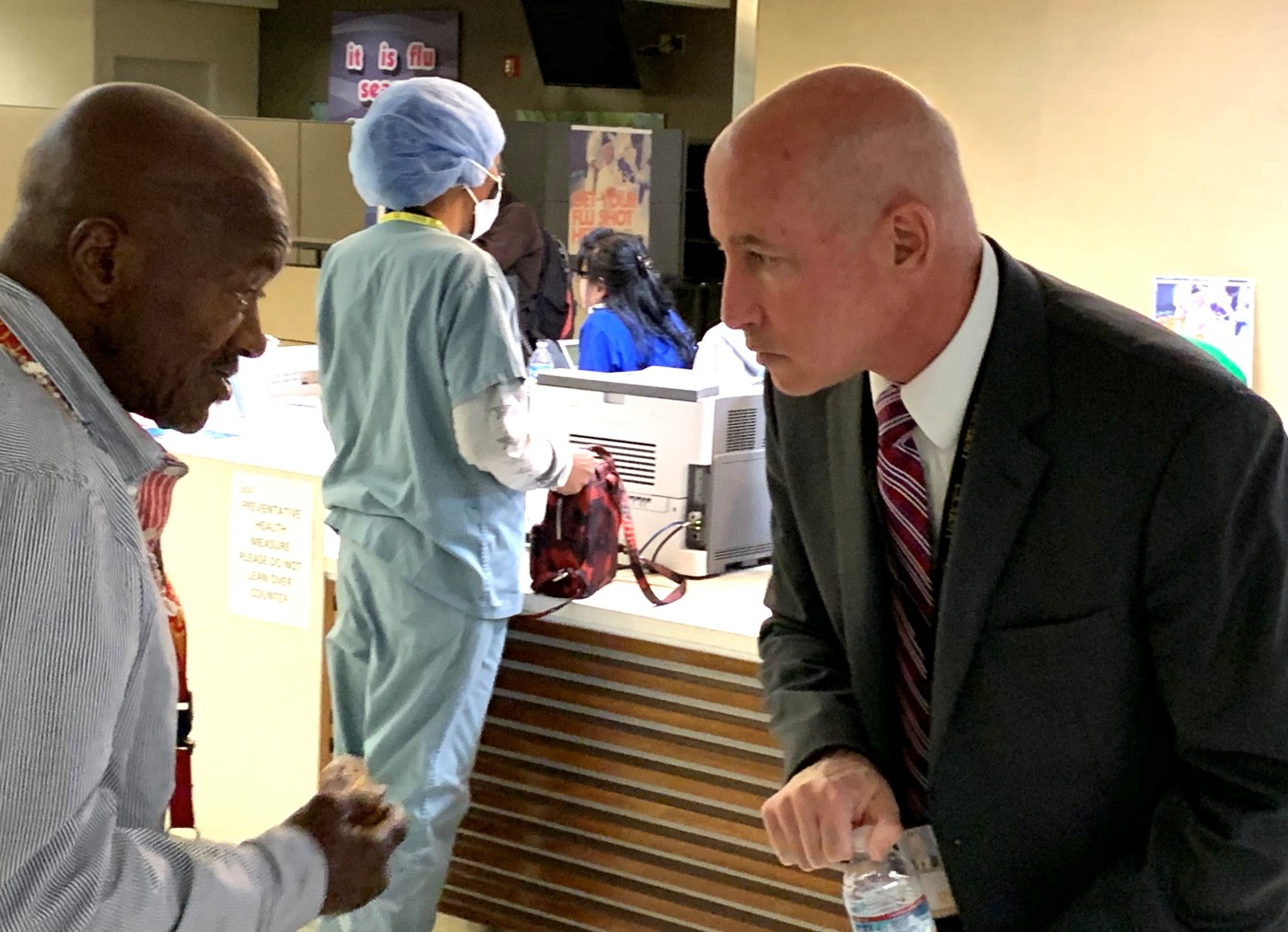In 2013, Dr. Steve Braverman, a physical medicine and rehabilitation physician in the U.S. Army Medical Corps, was named commander of the Walter Reed Army Institute of Research. The institute works to solve the top threats to soldier readiness and lethality, such as disease and battle injury.
Not long after, an Ebola virus outbreak in West Africa spread to urban areas and across borders, soon becoming an epidemic. The virus, which spreads by human-to-human transmission, can cause fever, body aches, diarrhea, and occasional bleeding inside and outside the body, among other adverse effects. It is often fatal if left untreated.
Sensing the urgency, Braverman and his staff shifted the focus of their clinical research program to pursue studies on an Ebola vaccine.
“With that, we actually were the first health care site in the U.S. to do a Phase 1 Ebola vaccine trial in humans,” he says. The U.S. Food and Drug Administration approved that vaccine in 2019 after clinical trials in Guinea, a West African country. “We also had research studies on tropical diseases like malaria and dengue fever, a big program for HIV across the world, and another centered on military psychiatry and traumatic brain injury,” he adds.
The need to change priorities
Understanding how to respond to the Ebola virus has come in handy for Braverman, who is now the director of the VA Greater Los Angeles Healthcare System. He has applied lessons learned from Ebola to his decision-making during the COVID-19 pandemic.
“From the standpoint of Ebola, the part that was important as a lesson learned was to be flexible with your current processes and systems and adapt them to what’s required based on national interest or the situation at hand,” he says. “So while we had programs ready to use our research facilities, when it became a high national priority to work on Ebola, we shifted resources to put an effort toward the Ebola vaccine, resources and capability that we already had.”
Similarly with COVID-19, Braverman and his colleagues changed their inpatient priorities.
“We moved facilities around so we could build surge beds and increase our capacity for infection isolation rooms,” he says. “We also opened a new first in VA, a COVID-19 recovery unit for nursing home patients who were COVID-19 positive but didn’t need hospitalization, to segregate them from the general nursing home population.
VA hospital participated in vaccine trial
“With our homeless population, we essentially used the resources that we have but reconfigured them to meet the needs of the current requirements,” he adds. “We’ve been transparent in what we’re doing so everybody on the staff understands the new goals and the new priorities, while at the same time understanding that everything you try isn’t going to work right the first time you try it. As a learning and process improvement organization, we would eventually get it right, even if it wasn’t perfect the first time out.”
Braverman’s role as commander of the Walter Reed Army Institute of Research from 2013 to 2015 and a follow-on assignment at the Army surgeon general’s office marked the end of his three-decade career in the Army Medical Corps. He spent the next three years as director of the Edward Hines, Jr. VA Hospital in Illinois and became director of VA Greater Los Angeles (GLA) in September 2019.
The coronavirus pandemic took hold a few months later, with GLA participating in several COVID-19 trials under Braverman’s leadership. They have included studies on the antiviral drug remdesivir (trade name Veklury) and the prostate cancer drug degarelix (trade name Firmagon), as well as a vaccine made by the U.S.-based pharmaceutical company Moderna.
More Information
Click here to read the rest of this article.
Click here to learn more about VA research.
Click here to learn more about VA COVID-19 trials and other research endeavors.
Topics in this story
More Stories
In a new series that highlights advancements in VA health care, VA researchers and clinicians are appearing on a Veteran-themed media platform—Wreaths Across America Radio—to tout their critical work.
Recently published findings from the VA Disrupted Care National Project […]
Diverse representation of women in health care research allows MVP to make discoveries for women’s health







